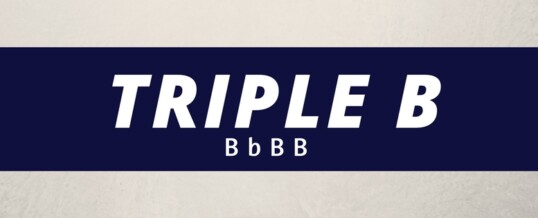
Triple B
Triple B was not the original title. I would have preferred to call this article the Three Bs. But, URLs don’t like apostrophes. And, calling it BBB would be infringing on the Better Business Bureau’s branding.
Nevertheless, big or small, every business needs to be about the Triple Bs. And, as we indicated in the title, probably more like four Bs.
Your Vehicle’s Dashboard Gauges
Most vehicles will have the following instrument gauges on the dash board:
- A speedometer
- A gas gauge
- A volt-meter (this tells you if your battery has the proper charge)
- A temperature gauge
Your Organization’s Dashboard Gauges
Whether you are a startup business or a Fortune 500 firm, you need the following Triple B (actually quadruple) gauges on your dashboard:
- Books. You need to do the books (e.g., monthly).
- Balance Sheet. Your balance sheet is actually part of your “books.” Doing your books entails ensuring you have valid and accurate financial statements. These consist of your Income Statement (e.g., P & L or Profit & Loss) and Balance Sheet. I list the Balance Sheet separately as it is often ignored.
- Break-Even Model. Every organization should know the level of sales or revenue it needs every month to cover all of its costs. Not that breaking even is an end-all, but God willing, you want to do better than just breaking even.
- Budget. Additionally, you and your organization should have an annual goal or forecast. God willing, you want to Innovate, Accelerate, and Replicate™. This means comparing your actual results to your goals.
Books
As mentioned, you or someone in your organization should do the bookkeeping and accounting every month. Some call this “closing the books.” If you are a startup or small business, you might consider hiring an outside bookkeeping service. If you would like a referral, let us know.
Balance Sheet
When you do your books, it’s very important to spend time on the Balance Sheet. As mentioned, your monthly financial statements consist of a P & L and a Balance Sheet. Most business owners focus almost exclusively on the P & L, but tend to ignore the Balance Sheet.
A long time ago I was an auditor for the Big 8 Firm of Coopers & Lybrand (now PricewaterhouseCoopers). Basically, as auditors, we were trained to substantiate every account on the client’s Balance Sheet.
The theory is this: Since every account is either shown on the Balance Sheet and P & L, if you know that your Balance Sheet is correct, then your P & L should be good.
Here’s another way of saying this: Unless your Balance Sheet is 100% valid, accurate, and complete, then you can’t rely on the accuracy of the P & L.
If you didn’t get this already, it’s crucial to pay careful attention to your Balance Sheet.
Break-Even Model
Every organization should know the amount of revenue it needs to cover its fixed costs every month. In practice, annual expenses should be broken down on a monthly basis.
Now, when you close the books every month, you should compare your results to your Break-Even Model.
Given your actual monthly revenue in comparison to the Break-Even Model, you need to determine if your actual results make sense. In other words, did you make the amount of money you should have?
If you also need help with this, let us know!
Budget
Lastly, if you haven’t started already, it’s smart to have a plan for the next year.
For some, this is termed a “projection.” God willing, be encouraged to have a plan. Also, be encouraged to spend time on the plan behind the plan. That is, you should spend time determining what you will need to do in order to pursue your plan.
Additionally, each month, be encouraged to compare your actual results (e.g., Books) to the Budget.
Triple B Summation
I know we actually covered four Bs. But, this is what we think you should aim for monthly:
- Compare your actual results (e.g., Books) to your Break-Even Model.
- Compare your actual results (e.g., Books) to your Budget.
- Make sure your Balance Sheet is accurate.
Establishing and maintaining this monthly discipline are effective practices – and should serve you well.
You wouldn’t think of operating your car without the necessary gauges, right? And, we wouldn’t want you to drive your business without the necessary gauges, either.
If you need any help along the way, just let us know. We’re happy to provide some guidance.
DEC

About the Author:
Ken Moll is the Principal and Founder of Blue Elevator®. With professional experience spanning four decades, Ken has a breadth of foundational business knowledge rarely found – making him part of an elite class of professionals. Ken's passion is helping clients of Blue Elevator® get their “business to the next level™.”